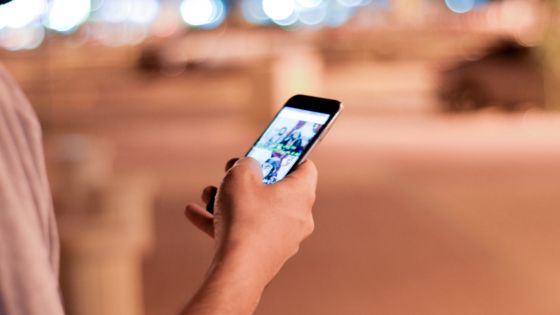7 Dumb Security Mistakes People Still Make Online
We’ve all heard the warnings time and time again. We know there are risks whenever we log on to the internet, whether we are using a computer or a mobile device. We’ve heard horror stories on the news — and even from friends — and yet so many of us still do dumb things that put our information at risk. In fact, according to research by Experian, although more than 80 percent of Americans say they are concerned about their personal information online, about 65 percent said that taking steps to be more secure is too much of a hassle.

However, there are things you can do to remain safe online, and they aren’t much of a hassle at all. In fact, when you avoid certain risky behaviors and install maximum security protection on all of your devices, the risk of any type of identify theft decreases significantly. It all begins, though, with not making these common but still very dangerous, mistakes.
1. Using Public Wi-Fi for Sensitive Transactions
Offering free public Wi-Fi for customers is common among retailers these days, especially in shopping malls, coffee shops, fast food restaurants and other places where people gather and want access to the Internet. The problem? These public Wi-Fi networks are very public, and hackers can easily spy on all network traffic, gathering everything from log-in passwords to account numbers and more. Using a public Wi-Fi network to surf the web is one thing, but never conduct sensitive transactions (like logging into your bank account, checking on a credit card account) using these public networks, or you could pay the price.
2. Never Changing Your Passwords
We get it — changing your passwords all the time and maintaining complex passwords for every log-in can be a bit of a hassle. But it’s so important, and with the help of a password manager, it’s not hard at all. Commit to changing your passwords every 90 days or so, and use multiple passwords for different accounts. That way, hackers can’t gain access to all your accounts if they happen to access a single credential.
3. Undervaluing Your Personal Information
Your personal information — meaning everything from your name and address to your food preferences — is valuable to both hackers and marketers. The more information hackers have about you, the easier it is to steal your identity. But even the information you think doesn’t matter is gathered and used by marketers to target ads and other content to you. You can control how your information is used by employing all available privacy tools on social media, enabling the “do not track” feature on your web browser and keeping close tabs on the information that you allow apps to collect from you.

4. Not Browsing Privately
Your web browsing activity is a treasure trove of information about you — and should someone with nefarious intent access your computer or mobile device, that information could be embarrassing or give them the tools they need to steal your identity.
For that reason, you should always log out of your accounts (even on your home computer), use private browsing windows and establish “guest” accounts on your devices so anyone who uses your computer cannot see what you’ve been doing. Even if you don’t have anything to hide, making your activity private prevents a hacker who somehow accesses your computer from finding all that information about you.
5. Not Using Secure Connections
It’s been said a million times, but it bears repeating: When you are conducting sensitive transactions online, you need to be sure that the connection is secure, indicated by https:// at the beginning of the web address. Do not make purchases or send other information over an unsecured connection as it can be viewed by anyone with access to the network.
6. Not Restricting Location Services
Many apps ask to use the GPS in your devices to monitor your location. Sometimes this is necessary, such as when you are using an app that contains a map. However, many apps do not need your location for anything — and even if the location adds to the experience (such as listing your location on your Instagram photos) it’s not necessarily a good thing. Someone who is watching you can monitor your location via your “check ins” and know when you aren’t at home, which can be dangerous. Bottom line? Unless you need location services, turn them off.
7. Using Credit Cards
Finally, when shopping online, using a credit card is a better idea than using a debit card, but it’s even better to use a payment service that tokenizes your information, such as PayPal or Apple Pay. With these services, your credit card number is never shared with the merchant, but rather you pay with an encrypted code that is safer than sharing your information. Only use your credit card when absolutely necessary to keep your information from falling into the wrong hands.
Keeping your personal information safe online doesn’t have to be a hassle. With these small changes, you will be safer and have peace of mind when you go online.




